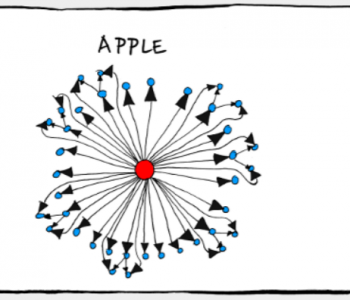 Culture
Culture
This is why hackathons are essentially useless
I’ve long been skeptical about hackathons which has been reinforced by from my firsthand experience and talking to other tech leaders especially inside large traditional companies where these have become popular over the past decade. I like the metaphor that you can’t run a marathon to get into shape which is what this approach is. Idea generation should be fluid and facilitated at all times by all those working on customer needs (hopefully most of your organization).
Think of it this way: For every runaway success that came out of a hackathon, such as Facebook’s “like” button, there are many more ideas that ended up shoved in a drawer, archived in a folder, or, worse, tossed in the trash bin. For the majority of participants, these events that are intended to empower can end up being pretty discouraging.
https://www.fastcompany.com/90430416/this-is-why-hackathons-are-essentially-useless
They are often used not only to generate ideas but help morale allowing people the “fun” of spending a day or two out of their mundane job working on new cool things. The irony is that they end up hurting morale as people get really excited they’re onto something which then dies on the vine either due to lack of process to take the idea forward or lack of stakeholder support (I’ve seen too many where the only reason leadership was doing it was to make the company seem “cool” and help as a hiring talking point to really have it backfire into cynicism).
“Innovation theater” … describes the phenomenon of a company making a big show of driving innovation without putting much in the way of resources or substance behind it. In many ways, hackathons are a perfect example of this. They’re highly visible, simple to understand, and seem like an easy way for a company to check the “innovative” box. But what a hackathon doesn’t do is deliver much tangible return for the business or for the employee. It’s a misstep if you realize that after it’s over, all you’ve done is divert resources away from the day-to-day of your business to focus on projects that will never reach your clients.
Any innovation activity has to be contextualized with goals that align to the company’s. Otherwise, there will be lots of cool ideas which have little value. Initiatives with high ROI potential are what innovation activities should be about whether its incremental operational improvement or breakout ideas to move into adjacent businesses.
We’re still keeping channels open at an enterprise-wide level through initiatives such as an online idea submission forum, which allows an employee or team to submit any new ideas for review
The author isn’t clear on how they are organized for it but one mistake organizations make is thinking everyone can be an “innovator”. There are two problems with this:
- People cannot hold both operational responsibility and expect to spend significant time researching new initiatives. The operational fire drills and goals will always suck up the oxygen.
- Operational and R&D mindsets are notably different. The first brings in people who make today a bit better than yesterday and tomorrow better than today. The latter is all about an exploratory mindset to prove oneself wrong until you can’t (and then you have something). It involves a lot of trial and error throwing valuable work away. Not many people can work that way.
Ideas are cheap and should come from anywhere at any time — hopefully, mostly from customer research. What you need is a dedicated team with a strong iterative, test & learn process to incubate them and cast the vast majority of bad ones aside. I share the author’s idea of “investing” in new ideas by looking at ROI. However, that should not be the first step but only after there’s a problem-solution fit.









